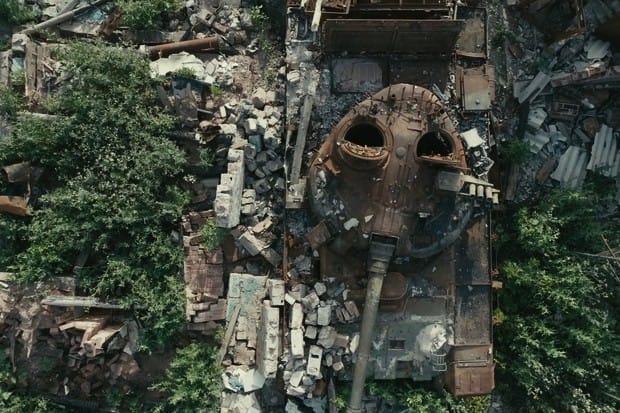Divia
Fits in within the Ukrainian tradition of poetic filmmaking...

One of the most compelling types of anti-war films are the idyllic interruptions. Paradise, or even just normal life, is interrupted by the sudden and unexpected violence of machine guns and missiles. This is a tradition ripe with classic anti-war films like Red Sorghum (Zhang Yimou, 1987) and Shttl (Ady Walter, 2022). Divia, an experimental Ukrainian documentary from director Dmytro Hreshko, breathes a new wind into this sub-genre with its innovative and avant-garde focus on Ukrainian wildlife and the landscape more broadly before and during the war.
The title refers to the Slavic goddess of nature and wildlife, though neither that connection nor anything else is ever verbalised onscreen. Divia is basically a silent film. The only words spoken are distant and largely indistinct – not unlike the noises of the non-human animals throughout the short 79 minute runtime. Hreshko’s film also fits in within the Ukrainian tradition of poetic filmmaking where Soviet filmmaking standards were rejected in favour of the radical avant-garde with poetic visuals. Oleksander Dovzhenko’s Earth (1930), with its nationally self-conscious undertones, seems to be a particularly key reference for the crew of Divia.
Continue reading at DMovies.